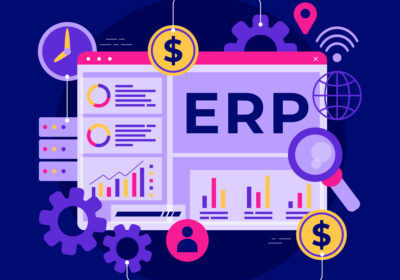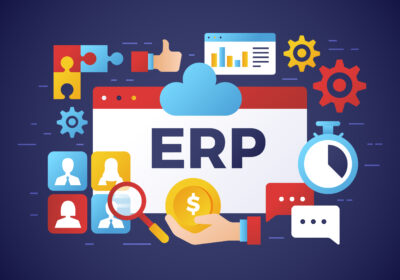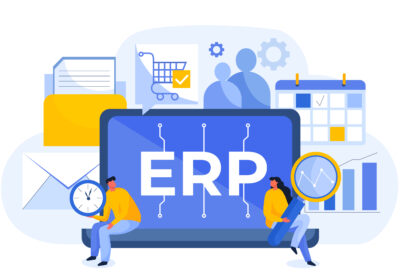In today’s fast-paced business environment, Enterprise Resource Planning (ERP) systems have become a cornerstone for managing business operations. These comprehensive software solutions integrate various business processes, fostering efficiency and synergy across departments. However, the modern workplace is becoming increasingly collaborative, and real-time communication is becoming a necessity. As a result, there’s an emerging trend of integrating collaborative workspaces and real-time communication tools into ERP systems to enhance their functionality and adapt to the evolving business landscape.
Understanding Collaborative ERP Workspaces
Collaborative ERP workspaces are shared platforms within an ERP system where team members can work together, share information, and manage tasks. These workspaces are designed to foster collaboration, improve workflow, and enhance productivity.
Collaborative workspaces can have several benefits. They can improve communication by providing a platform for team members to share information and updates. They can enhance project management by providing tools for task assignment, progress tracking, and resource allocation. They can also foster innovation by providing a space for team members to share ideas and feedback.
In the next section, we will discuss the role of real-time communication tools in ERP systems. Let me know if you need any changes in these sections.
The Role of Real-time Communication Tools in ERP
Real-time communication tools have become an integral part of modern ERP systems. These tools, such as instant messaging, video conferencing, and shared calendars, facilitate immediate interaction and collaboration among team members, regardless of their physical location.
In the context of ERP systems, real-time communication tools can significantly enhance efficiency and productivity. They allow for instant sharing of information, faster decision-making, and improved coordination among team members. They also enable teams to address issues in real-time, reducing delays and improving the overall effectiveness of business processes.
Real-time Communication Tools: A Game Changer in Decision Making
Real-time communication tools embedded in ERP systems are revolutionizing the decision-making process in businesses. These tools, such as instant messaging, video conferencing, and shared calendars, provide immediate access to critical data, enabling stakeholders to make informed decisions swiftly.
In the fast-paced business environment, the ability to make quick decisions is crucial. Real-time communication tools expedite this process by providing instant access to the information needed to make these decisions. Whether it’s sales figures, inventory levels, or customer feedback, stakeholders can access this information in real-time, enabling them to make informed decisions that can give the business a competitive edge.
Moreover, these tools also facilitate collaboration in the decision-making process. Stakeholders from different departments can come together in real-time to discuss, debate, and decide on the best course of action. This collaborative decision-making can lead to better outcomes as it leverages the diverse expertise and perspectives within the team.
Integrating Collaborative Workspaces and Real-time Communication Tools in ERP
Integrating collaborative workspaces and real-time communication tools into ERP systems can transform the way businesses operate. Here are some strategies for successful integration:
- Choose the Right Tools: Not all tools are created equal. It’s important to choose tools that fit your business’s needs and are compatible with your ERP system.
- Train Employees: Ensure that all users are trained on how to use the new tools effectively. This will help to ensure smooth adoption and maximise the benefits of the tools.
- Promote a Collaborative Culture: Tools alone are not enough. It’s important to foster a culture of collaboration where employees are encouraged to share information and work together.
The Impact of Collaborative ERP Workspaces on Team Dynamics
Collaborative ERP workspaces are transforming the way teams operate within organisations. By providing a shared platform where information can be accessed and tasks managed, these workspaces are breaking down the traditional silos that often exist within businesses.
One of the key impacts of these collaborative workspaces is the promotion of transparency. With everyone having access to the same information, there’s less room for misunderstandings or miscommunications. Everyone knows what’s happening, when it’s happening, and who’s responsible for what. This level of transparency can lead to increased trust and cooperation among team members.
Another significant impact is the fostering of collaboration. In a collaborative ERP workspace, team members can work together on tasks, share ideas, and solve problems collectively. This not only leads to improved efficiency but also fosters a sense of camaraderie and teamwork.
Moreover, by breaking down silos, collaborative ERP workspaces enable seamless cooperation between different departments. This cross-functional collaboration can lead to better decision-making as decisions are made based on comprehensive, organisation-wide information rather than limited departmental data.
Conclusion
The integration of collaborative workspaces and real-time communication tools in ERP systems represents a significant advancement in the way businesses operate. These tools foster collaboration, improve efficiency, and expedite decision-making.
Software companies like Verbat, a leading software company in Dubai, are at the forefront of this transformation. With their expertise and resources, they can help businesses in the UAE and beyond integrate these tools into their ERP systems, paving the way for a more collaborative and efficient future.





